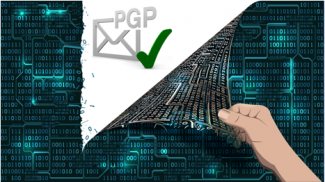Encryption and cryptography go back a long way, with their history usually associated with military applications. The first encryption stories to really catch the public imagination were probably those about the German Enigma machine, and how Alan Turing and others contributed to the Allied victory of World War II by cracking its secrets.
Mainstream civilian use is a much more recent phenomenon. First developed in 1991 by Phil Zimmerman, PGP (Pretty Good Privacy) has played a leading role in making sophisticated encryption available to the masses.
Thirty years seems a lifetime in Internet years, but PGP is no dinosaur. It remains as popular as ever. Perhaps more than ever, based on the demand we’ve had for incorporating PGP into our EFT Processing module for Sage 300.
That’s why we’ve recently added PGP Encryption of Bank Files to our Extender Marketplace, making it available on request to our large EFT Processing user base.
Fun Facts from PGP’s History
I had a rudimentary knowledge of how PGP works, having first used it for secure file transfers about 20 years ago, but knew pretty much nothing about its history. As soon as I dipped into its Wikipedia entry I discovered the story was far more interesting than I’d expected.
I think it’s a tale worth sharing, so here are some of the gems that caught my attention.
- What’s in a name? The name "Pretty Good Privacy" was inspired by a grocery store, "Ralph's Pretty Good Grocery", featured in radio host Garrison Keillor's fictional town, Lake Wobegon.
- Peaceful Beginnings: PGP was initially uploaded to the Internet via a Usenet newsgroup on Peacenet, an ISP that specialized in grassroots political organizations. Zimmerman, an anti-nuclear activist, wanted like-minded people to have access to secure communications about sensitive topics.
- Born Open Source: For that reason, no license fee was required for the non-commercial use of PGP, and from Day 1 the complete source code was included with all copies of PGP.
- Only in America: The initial Usenet posting was tagged “US Only”, under the misapprehension that this would restrict its distribution to the USA, in order to comply with export regulations.
- Peacenik turns Arms Exporter? He was wrong! “US Only” was just an advisory tag.
Zimmerman soon found himself charged with "munitions export without a license", as cryptosystems designated high-strength were considered munitions!
- Bedtime Reading: He made this law a bit of a laughing stock by publishing the source code in a hardcover book, freely available worldwide. (Software exports were restricted, but books were protected by the free speech provisions of the US 1st Amendment.) An enterprising software engineer could scan (or manually type in) each page, bypassing the software export laws.
A Happy Ending
The authorities eventually admitted defeat, deciding not to pursue the charges after several years. PGP was free to pursue its quest for world domination. US cryptography export regulations have since been substantially liberalized, so...
Rest easy. you should be able to use Orchid’s new PGP Encryption app without expecting a knock on the door.

